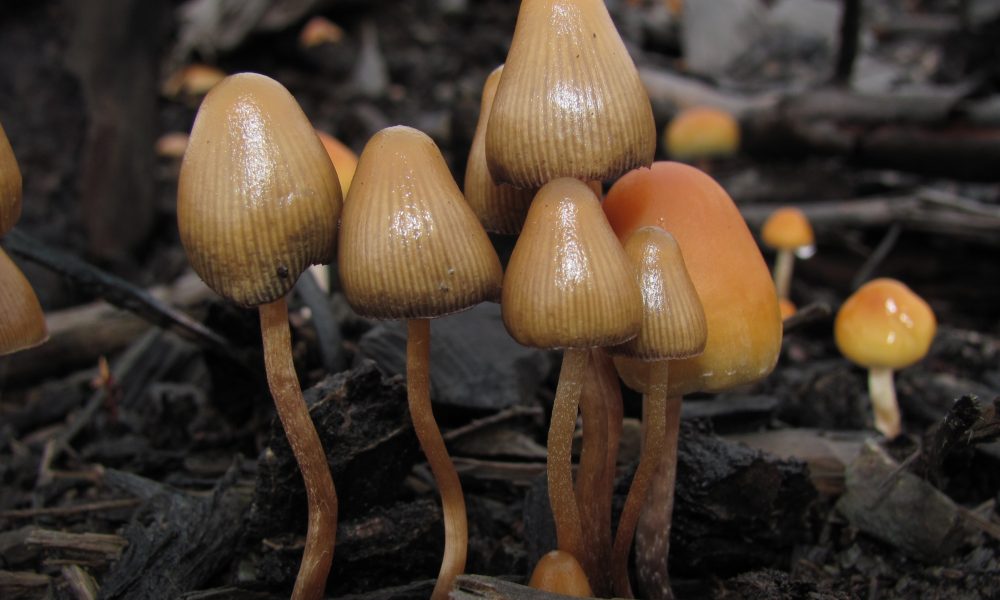The Oklahoma House of Representatives has approved a bill to promote research into the therapeutic potential of psilocybin while providing legal protections against prosecution for people with eligible conditions who possess the psychedelic.
The legislation from Rep. Daniel Pae (R) cleared the chamber in a 66-32 vote on Thursday, about a month after the measure advanced through committee. It now heads to the Senate for consideration.
Prior to passing the bill, members adopted an amendment to strike the title, which is a typical legislative mechanism that removes the description at the top of the bill, technically putting it out of compliance with the state Constitution and requiring lawmakers to revisit it. It’s a way of advancing the legislation while recognizing that further changes are needed before a bill is enacted.
As revised in a House committee, the proposal calls for the establishment of a pilot program that would let universities as well as research facilities that contract with Oklahoma institutions of higher education carry out studies into psilocybin and psilocyn.
Research institutions would need to look into the use of the psychedelics for the treatment of post-traumatic stress disorder (PTSD), traumatic brain injury, early-stage dementia, palliative care, end-of-life care, opioid use disorder, chronic pain, severe depression, anxiety and obsessive-compulsive disorder.
🍄Magic Mushrooms: A Bipartisan Bill to Research Psilocybin’s Effect on Conditions such as PTSD, Depression, Anxiety, and Substance Abuse has just Passed the Oklahoma House of Representatives 66-32. pic.twitter.com/ShjMNiQek4
— Rep. Mickey Dollens (@MickeyDollens) March 9, 2023
As introduced, the bill was already more limited than a version that Pae sponsored last session, omitting provisions to broadly decriminalize the substances.
But while the bill no longer couples research with decriminalization, people who face prosecution over psilocybin possession would be afforded an affirmative defense if they can “demonstrate by clear and convincing evidence” that they have a medical condition that falls under the list of study subjects like PTSD or chronic pain.
“This subsection shall not be understood to be the decriminalization of psilocybin or psilocyn,” the bill states.
In committee last month, members approved a substitute to remove references to “clinical trials” that the institutions would have been expected to carry out and instead describing the research mandate in the context of a pilot program.
Researchers could still study psilocybin by administering it to registered patients, however, so it doesn’t seem that the amended language would have a significant practical impact.
—
Marijuana Moment is tracking hundreds of cannabis, psychedelics and drug policy bills in state legislatures and Congress this year. Patreon supporters pledging at least $25/month get access to our interactive maps, charts and hearing calendar so they don’t miss any developments.
Learn more about our marijuana bill tracker and become a supporter on Patreon to get access.
—
Under the legislation, researchers would need to study the “therapeutic efficacy” of psilocybin for the listed conditions, review of the existing scientific literature and also examine the “science of cultivation, synthesis, extraction, and processing of psilocybin and psilocyn as well as the fungi, yeasts, and other naturally occurring source organisms of these molecules.”
Researchers and people participating in the psychedelics pilot program would be protected against prosecution.
“Researching entities shall submit a written report to the President Pro Tempore of the Oklahoma State Senate and the Speaker of the Oklahoma House of Representatives containing the results of the studies conducted under this section and any recommendations for legislative or other actions not later than December 1, 2026,” it continues.
The legislation that Pae sponsored last session passed the House and made it through a Senate committee, where it was amended to exclude decriminalization, but it did not advance through the full chamber.
Seven In Ten Florida Voters Support Marijuana Legalization, Poll Finds As Campaign Petitions For 2024 Ballot Initiative
Photo courtesy of Wikimedia/Mushroom Observer.
Read the full article here









